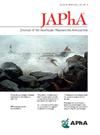Implementation of a pharmacist-led weight loss service to improve medication access and weight loss
IF 2.5
4区 医学
Q3 PHARMACOLOGY & PHARMACY
Journal of the American Pharmacists Association
Pub Date : 2024-07-01
DOI:10.1016/j.japh.2024.102085
引用次数: 0
Abstract
Background
Obesity is a prevalent medical condition that can contribute to an increased risk of developing serious comorbidities, leading to an increase in hospitalizations, morbidity, and mortality. Many of these medical conditions can be improved with weight loss.
Objectives
This project was designed to improve weight loss outcomes and assess the utilization of services provided by clinical pharmacists for collaborative weight loss management.
Methods
The study design was a single-center, retrospective, and quality improvement study within 3 outpatient clinics at Tufts Medical Center. Patients referred to the pharmacist-led weight loss service from September 1 to October 31, 2022, and continued care for up to 6 months were included. Pharmacist services included selection of weight loss medication, assistance with medication access, device teaching and dose titration, lifestyle counseling, and follow-up. The primary outcome was percent weight loss from baseline.
Results
Seventy-nine patients were referred to the pharmacist-led weight loss service. Mean age of patients was 51 years (SD ±13). Sixty-one patients were female (77.2%). Median baseline weight was 105.5 kg (IQR 93.1 to 120.5 kg) and body mass index 38.1 kg/m2 (IQR 33.9 to 43.5 kg/m2). The median percent weight loss from baseline through the end of the study duration was −8.0% (IQR -3.1 to −12.1%).
Conclusion
Pharmacists were able to effectively provide weight loss care through a pharmacist-led weight loss service by aiding in medication access, providing education on devices and lifestyle management, and engaging in frequent follow-up. Future directions of this study include expansion of the pharmacist-led weight loss service to other ambulatory care clinics within TMC.
实施以药剂师为主导的减肥服务,改善用药和减肥情况
肥胖是一种普遍存在的病症,会增加罹患严重并发症的风险,导致住院率、发病率和死亡率上升。通过减肥可以改善其中许多病症。本项目旨在改善减肥效果,并评估临床药剂师提供的合作减肥管理服务的使用情况。研究设计是在塔夫茨医疗中心的 3 个门诊诊所内进行的一项单中心、回顾性和质量改进研究。研究对象包括 2022 年 9 月 1 日至 10 月 31 日期间转诊至药剂师主导的减肥服务并持续接受治疗长达 6 个月的患者。药剂师的服务包括选择减肥药物、协助取药、器械教学和剂量滴定、生活方式咨询以及随访。主要结果是体重从基线下降的百分比。79名患者被转诊至药剂师主导的减肥服务。患者平均年龄为 51 岁(SD ±13)。61名患者为女性(77.2%)。基线体重中位数为 105.5 千克(IQR 93.1 至 120.5 千克),体重指数为 38.1 千克/米(IQR 33.9 至 43.5 千克/米)。从基线到研究结束,体重减轻百分比的中位数为-8.0%(IQR -3.1%至-12.1%)。通过药剂师主导的减肥服务,药剂师能够有效地提供减肥护理,包括协助药物获取、提供器械和生活方式管理方面的教育,以及进行频繁的随访。这项研究的未来方向包括将药剂师主导的减肥服务推广到 TMC 的其他非住院医疗诊所。
本文章由计算机程序翻译,如有差异,请以英文原文为准。
求助全文
约1分钟内获得全文
求助全文
来源期刊
CiteScore
3.30
自引率
14.30%
发文量
336
审稿时长
46 days
期刊介绍:
The Journal of the American Pharmacists Association is the official peer-reviewed journal of the American Pharmacists Association (APhA), providing information on pharmaceutical care, drug therapy, diseases and other health issues, trends in pharmacy practice and therapeutics, informed opinion, and original research. JAPhA publishes original research, reviews, experiences, and opinion articles that link science to contemporary pharmacy practice to improve patient care.

 求助内容:
求助内容: 应助结果提醒方式:
应助结果提醒方式:


